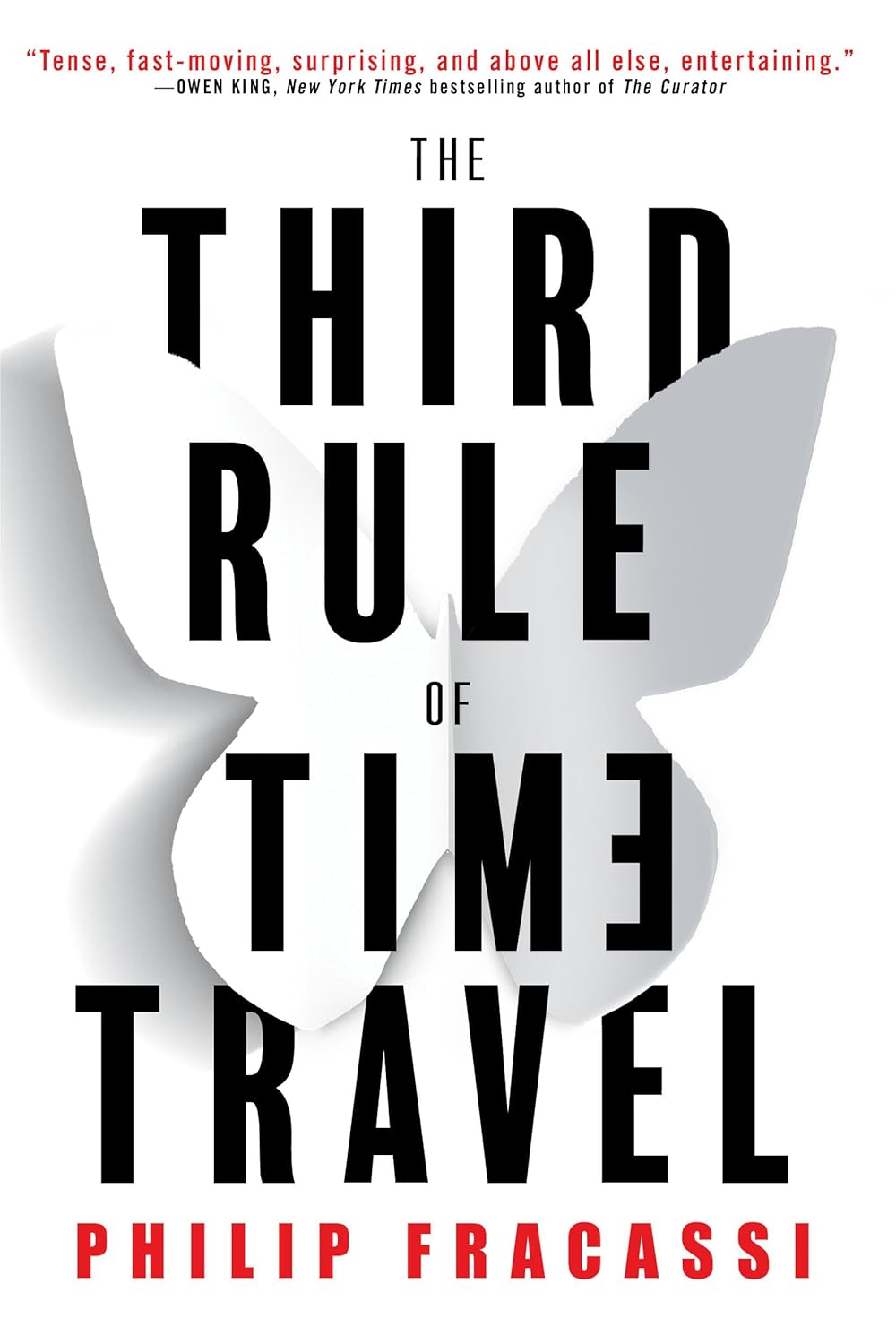The Third Law of Time Travel

Author: Fraccassi, Philip
Tags: sci-fi, suspense
Timeline: between Thursday, April 10, 2025 and Saturday, April 12, 2025
Let’s save you some time: Have you read 2 or 3 time-travel books and enjoyed them? Do you enjoy quick reads? Great then this book is for you; stop reading here!
Beth spins on her heel so suddenly the psychologist—a head taller and a solid fifty pounds heavier— takes a cautious step back, hands up, as if she were turning around with a cocked right hook. She locks her jaw to hide the small tinge of pleasure at seeing his fear.
Starting with the good things about this book; our protagonist, Beth Darlow, is a 30 year old widow, mother of a preschool girl, physicist, mathematician, co-inventor of a time-machine, manager of the project to commercialize the thing. In short, she has a very tough life as a mama bear and high achieving career woman. And Beth’s character as written is believable in her attitudes and her actions. Mr. Fracassi’s prose is tight and quick; there are some solid paragraphs, such as in the pull quote and it has some clever transitions that I found zifty.
But let’s get down to brass tacks: The most important task of sci-fi is about coming close to a scientific explanation for something that is not scientifically possible so that the reader can suspend his disbelief and enjoy the ride. And time-travel books are their own subcategory because the author has to find some new way to tapdance around time-travel (and resolve all the time-travel paradoxes cleanly) that hundreds of authors have already taken a stab at. It appears at first that this book did do just that, the time-traveller is only able to see his own past and is not able to do anything in the past he is essentially psychic hitchhiker reliving his/her own past, so no need to worry about causing paradoxes because you can’t kill your father (boy thats a relief). And just to make things super safe, there is a before/after time-travel paradox detection protocol that makes it for sure for sure nothing bad will happen.
What is the point of traveling back in time if you can only see events in your own life and you can’t do anything at all? Bragging rights? The ability to write perfectly accurate history books of a very narrow scope?
Yet with all those safeguards in place, the are still problems with the machine, for one thing it only seems to send Beth to tragic points in her life, such has plane crash that killed her parents and siblings. For another thing, somehow our time traveling superwoman (who only observes) has caused a paradox and her daughter is written out of the timeline! Ok now we’re cooking, Beth’s challenge is to use her invention to bring her daughter back!
As it happens her departed husband (hit by a car a year before the action starts) (and co-inventor of the time-machine) sussed out problems with the machine (but, along with her current assistant, kept them a secret). Now he is somehow communicating with Beth from beyond the grave to help her fix things. And here is where I began to lose patience with the book.
The climax of the time-travel book is supposed to clear up all the paradoxes so Beth can live happily ever. In this story, the climax occurs in fragments because Beth is tied down in the time machine so she can’t watch the important events in the lab where the real-world action takes place. This, is to me a cop out by the writer to hide the crazy implausibility of the events and non-resolution of how things are solved.
I should have read more carefully because, that’s the point isn’t it? For the author to wow the reader with how cleanly every thing resolves. But by that point I knew I only needed an hour at most to finish the book and I DGAF anymore.
Or to put it another way, no, I didn’t really like this book much by the end.